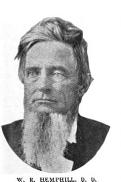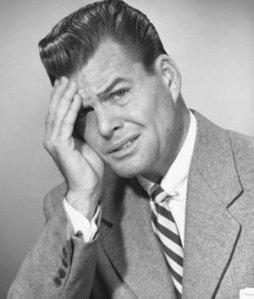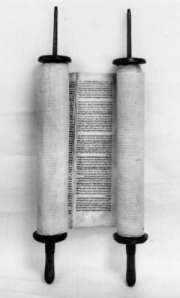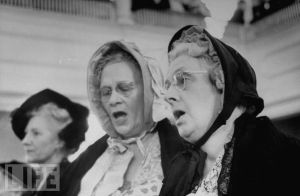 Dodds, Robert James, D.D.–“Son of Archibald and Margaret (Davison) Dodds, was born near Freeport, Armstrong County, Pennsylvania, August 29, 1824. Possessed from his youth with integrity of character and amiability of disposition he was dedicated to God for the work of the ministry. At an early age he began his classical studies under the direction of his pastor, the Rev. Hugh Walkinshaw, and made such rapid progress and proficiency in all the departments of literature taught in a College, that he was recommended as sufficiently advanced to begin the study of theology in the spring of 1844. He studied theology in the Allegheny and Cincinnati Seminaries, and was licensed by the Pittsburgh Presbytery, June 21, 1848. As a preacher, his sermons were rich in Scriptural truth and illustration. He was not a popular orator owing to a hesitancy in his speech, and he was more spiritual than ornate; more thoughtful than rhetorical; more anxious about conviction than elegance of style. He was admirably adapted with every qualification for a successful Missionary. He was a good classical scholar, and made such proficiency in the study of the Arabic tongue that he was able to preach a sermon in that language in eighteen months after beginning the study of it. He was a remarkably cheerful man, uniform in his feelings and sympathetic in his disposition. His intellectual character was marked with keen and vigorous reasoning powers, a retentive memory, and the ability to concentrate his ideas. Among his earlier publications is, “A Reply to Morton on Psalmody,” 1851, pp. 140. His writings are principally letters to the Foreign Mission Board and are published in the Church magazines. He translated the Shorter Catechism into the Arabic language, and was engaged in writing and translating other works for the use of the Mission. He was honored with the degree of Doctor of Divinity by Monmouth College in 1870. He was Moderator of the Synod of 1866. During a subsequent journey to Idlib, he contracted a severe cold which adhered to him. In the beginning of December following, he suffered from a slight hemorrhage of the lungs, intensified by typhoid fever, from which he died, at his home in Aleppo, Syria, December II, 1870.” from History of the Reformed Presbyterian Church of America by William Malancthon Glasgow, p484-487. Dodds’ work “A Reply to Morton on Psalmody can be found here
Dodds, Robert James, D.D.–“Son of Archibald and Margaret (Davison) Dodds, was born near Freeport, Armstrong County, Pennsylvania, August 29, 1824. Possessed from his youth with integrity of character and amiability of disposition he was dedicated to God for the work of the ministry. At an early age he began his classical studies under the direction of his pastor, the Rev. Hugh Walkinshaw, and made such rapid progress and proficiency in all the departments of literature taught in a College, that he was recommended as sufficiently advanced to begin the study of theology in the spring of 1844. He studied theology in the Allegheny and Cincinnati Seminaries, and was licensed by the Pittsburgh Presbytery, June 21, 1848. As a preacher, his sermons were rich in Scriptural truth and illustration. He was not a popular orator owing to a hesitancy in his speech, and he was more spiritual than ornate; more thoughtful than rhetorical; more anxious about conviction than elegance of style. He was admirably adapted with every qualification for a successful Missionary. He was a good classical scholar, and made such proficiency in the study of the Arabic tongue that he was able to preach a sermon in that language in eighteen months after beginning the study of it. He was a remarkably cheerful man, uniform in his feelings and sympathetic in his disposition. His intellectual character was marked with keen and vigorous reasoning powers, a retentive memory, and the ability to concentrate his ideas. Among his earlier publications is, “A Reply to Morton on Psalmody,” 1851, pp. 140. His writings are principally letters to the Foreign Mission Board and are published in the Church magazines. He translated the Shorter Catechism into the Arabic language, and was engaged in writing and translating other works for the use of the Mission. He was honored with the degree of Doctor of Divinity by Monmouth College in 1870. He was Moderator of the Synod of 1866. During a subsequent journey to Idlib, he contracted a severe cold which adhered to him. In the beginning of December following, he suffered from a slight hemorrhage of the lungs, intensified by typhoid fever, from which he died, at his home in Aleppo, Syria, December II, 1870.” from History of the Reformed Presbyterian Church of America by William Malancthon Glasgow, p484-487. Dodds’ work “A Reply to Morton on Psalmody can be found here
Month: September 2010
Hemphill, William Ramsey (1806-1876)
 Hemphill, William Ramsey.—”Born in Hopewell, Chester Co., S. C, March 14, 1806; was a son of Rev. John Hemphill, D. D., a conspicuous figure in the history of the Associate Reformed Church for the first quarter of the 19th century. In June. 1837, he was ordained and installed by the Second Presbytery pastor of Cedar Springs and Long Cane, Abbeville County, S. C During the ten years of his pastorate he stulied hard, preached with all his might, spared neither body nor mind, and succeeded in laying the foundation of his ministerial fame. In 1848 he was elected by Synod to the Chair of Latin in Erskine College. This position he filled until the College was temporarily broken up by the war. In 1871 he removed to New Hope, Madison Co., Ky., where he remained three or four years, until failing health caused his return to his old home in Due West. He was somewhat of a polemic, indulging occasionally in the controversial. About the year 1843 and 1844 he was drawn into a controversy in the “Charleston Observer” with “Charlestoniensis” (Dr. Thomas Smyth) on the subject of Psalmody. The fire was kept up for some time with spirit on both sides, neither party being willing to admit that he had been beaten. This well-known and highly esteemed minister departed this life at his home in Due West, Abbeville county, S. C., on the morning of Friday, July 28, 1876, aged 70 years. 4 months, and 14 days.” from The Centennial History of the ARP, 1803-1903
Hemphill, William Ramsey.—”Born in Hopewell, Chester Co., S. C, March 14, 1806; was a son of Rev. John Hemphill, D. D., a conspicuous figure in the history of the Associate Reformed Church for the first quarter of the 19th century. In June. 1837, he was ordained and installed by the Second Presbytery pastor of Cedar Springs and Long Cane, Abbeville County, S. C During the ten years of his pastorate he stulied hard, preached with all his might, spared neither body nor mind, and succeeded in laying the foundation of his ministerial fame. In 1848 he was elected by Synod to the Chair of Latin in Erskine College. This position he filled until the College was temporarily broken up by the war. In 1871 he removed to New Hope, Madison Co., Ky., where he remained three or four years, until failing health caused his return to his old home in Due West. He was somewhat of a polemic, indulging occasionally in the controversial. About the year 1843 and 1844 he was drawn into a controversy in the “Charleston Observer” with “Charlestoniensis” (Dr. Thomas Smyth) on the subject of Psalmody. The fire was kept up for some time with spirit on both sides, neither party being willing to admit that he had been beaten. This well-known and highly esteemed minister departed this life at his home in Due West, Abbeville county, S. C., on the morning of Friday, July 28, 1876, aged 70 years. 4 months, and 14 days.” from The Centennial History of the ARP, 1803-1903
“Power does not lie in the direction of a retreat from an impregnable position.”
 “In favor of the cause [of Psalmody] we find the witnesses well located. All the lighthouses are not placed in the same corner of the sea; neither are all the street lights found in the same part of the city. Missionaries are not all sent to the same corner of the globe, but, like the lights, they are distributed among needy fields. God has distributed Psalm-singers over the world in such a way that they are well located to be light-bearers and witnesses and missionaries among men.
“In favor of the cause [of Psalmody] we find the witnesses well located. All the lighthouses are not placed in the same corner of the sea; neither are all the street lights found in the same part of the city. Missionaries are not all sent to the same corner of the globe, but, like the lights, they are distributed among needy fields. God has distributed Psalm-singers over the world in such a way that they are well located to be light-bearers and witnesses and missionaries among men.
In favor of the cause we find a safe, strong position. Power does not lie in the direction of a retreat from an impregnable position. These Psalm-singing Churches now have an influence for good in the world out of all proportion to their numbers, and if they should desert their position on Psalmody there is reason to believe that the old sad story of Samson’s strength and weakness would be repeated. Our position on Psalmody is the first line of defense, and a strong line of defense, for the fundamentals of our religion. If we should desert this first position under the assaults that are made upon it, we would find that the roar of battle would be heard about some other position in a short time, and it might be that the point of the next attack would be the inspiration of the Bible, or the Atonement, or the divinity of Christ.” The Status and Outlook of the Cause of Psalmody by SE Martin, from The Psalms in Worship, ed. by John McNaugher, p 540-541.





